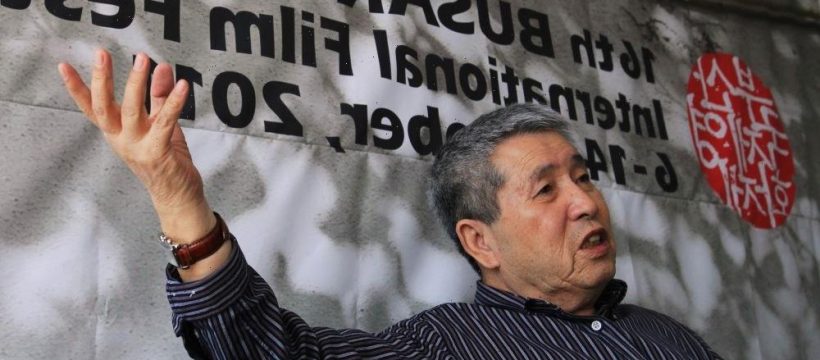Busan’s Asian Film Maker of the Year Award has become almost indistinguishable from a lifetime achievement award. But that need not diminish either the recipient or the festival.
Im Kwon-taek is arguably the best-known South Korean film director to have straddled both the modern era and the earlier time when the country and the film industry were under more authoritarian control.
At 85, Im is not only one of the oldest working directors, he has also been one of the most prolific. In a career that stretches from a 1962 debut with “Farewell Duman River” to 2014 title “Revivre” (aka “Hwajang”) he has made 102 features.
Born in provincial Gwangju in 1934, Im made his way to Busan and, eventually, Seoul where he found work initially as a production assistant. For the first two decades of his directing career, he earned a reputation as a reliable journeyman, able to deliver films according to the military government’s annual quota, without any particular specific artistic flair.
He is considered to have made a breakthrough into a more artistic period with the 1981 title “Mandala” about Buddhist monks. From then on, he developed a storytelling style that conveys more of Korea’s history and culture, as well as touching on taboo subjects echoing popular sentiments and opinions on philosophy, religion and morality.
In 2000 and 2002, he directed two of the leading titles of the New Korean Wave, “Chunhyang” and Chihwaseon (“Painted Fire”), both of which played at Cannes. “Chunhyang” represented a return to a favorite subject, Pansori, a simple oral and musical stage tradition which he previously explored in “Seopyonje.”
“Chihwaseon” featured the incomparable Choi Min-sik raging as a 19th century painter battling alcoholism and a repressive regime. It earned Im the best director award at Cannes in a tie with Paul Thomas Anderson.
Im’s most recent feature, “Revivre” was based on a short story, “From Powder to Powder” by Kim Hoon. It tells a story of a marketing executive of a cosmetics in his mid-fifties juggling work and caring for his ailing cancer-stricken wife. The man becomes conflicted when he develops feelings for a young new addition to his marketing team. The film premiered in out of competition at the Venice film festival that year and earned the best film prize at Korea’s Baeksang Arts Awards in 2015.
In Korea, Im holds the record for 13 best film awards including the Baeksang, Blue Dragon Film and Daejong Film Awards. His honorary titles include: the UNESCO Fellini Gold Medal in 2002, paying tribute for Im’s exhaustive efforts to boost the art of film; and the Chevalier de l’Ordre de la Legion d’Honneur, from the French government in 2007.
Source: Read Full Article
